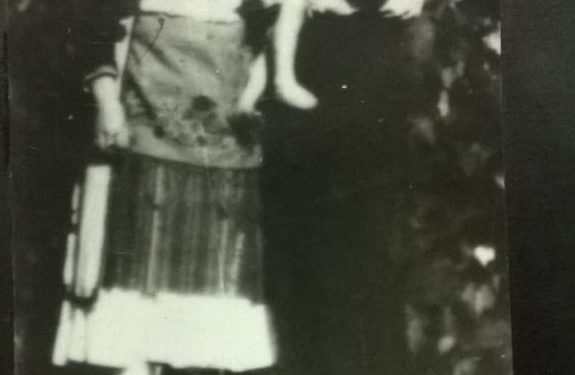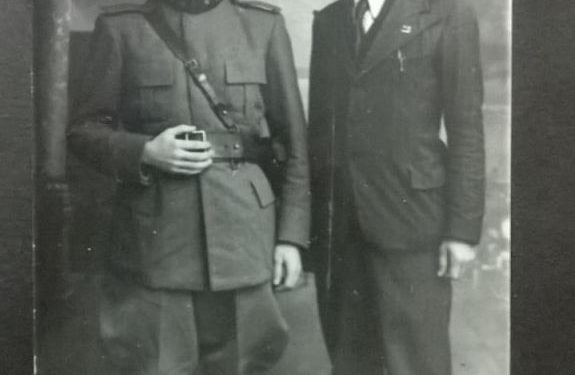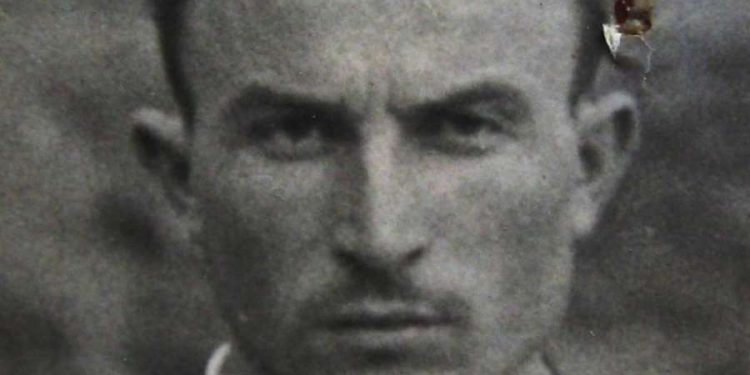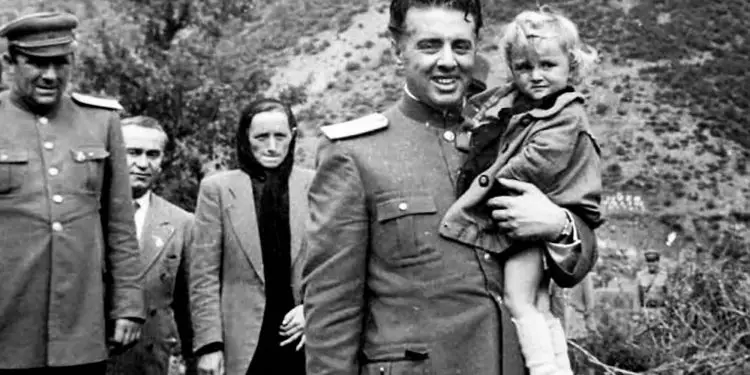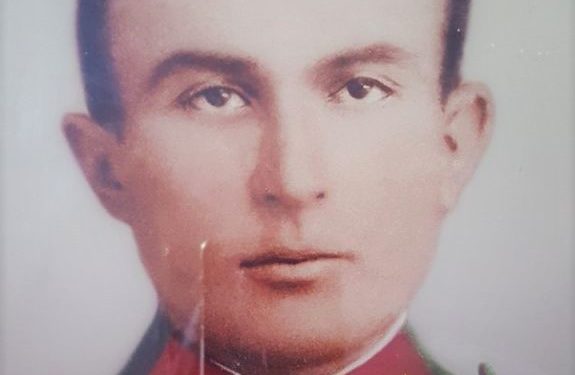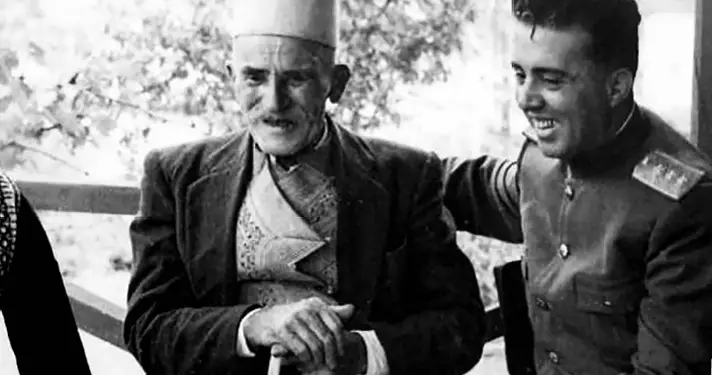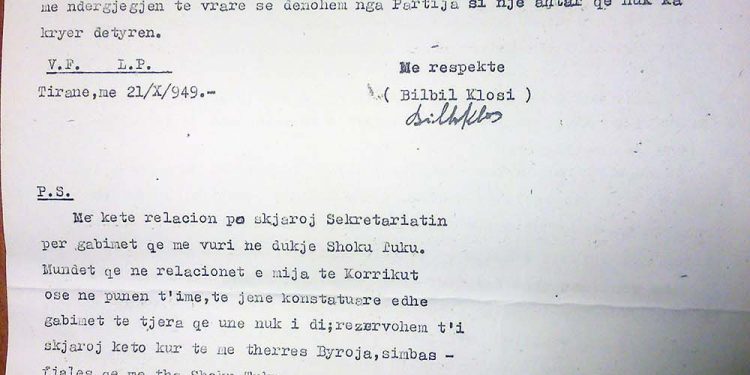Dashnor Kaloçi
Memorie.al publishes the letter of 1949 where the President of the High Military Court Bilbil Klosi, informs the secretariat of the Central Committee of the ALP about all the sentences he had given up to that time, including the execution of 14 mirditors in revenge for the murder of Bardhok Biba, where he says, among other things: “No death sentence was approved without the decision of the Party, no death sentence was issued without the consent of the Party. In any case, I talked to Enver, Tuk, Hysni, Mehmet, etc. and got their approval “.
The event of August 7, 1949, where the First Secretary of the Mirdita Party Committee and at the same time the deputy of that province in the People’s Assembly, Bardhok Biba, was killed, as well as the revenge of the communist regime of Tirana for what happened as revenge for the murder of Bardhok executed 14 men and imprisoned and exiled him with tens of hundreds of innocent Mirditors, which from that time to the present day has aroused numerous discussions. Where are the big questions about the murder of Bardhok Biba, as well as who was the senior leader who decided and ordered the brutal revenge against the “reactionary Mirdita”?! Whereas from the distant year 1949 when that event took place and until today, it has been attributed to Mehmet Shehu, the person who personally led the punitive operation in Mirdita, an archival document recently discovered, he rejects that version.
This is made clear by the information of Bilbil Klosi, former President of the Supreme Military Court in the years 1945-1949 (later Minister of Justice and Secretary of the Presidency of the Presidium of the People’s Assembly), which bears the date October 21, 1949 and sent to the secretariat of the Central Committee of the Communist Party of Albania and to Enver Hoxha himself. Among other things, in that report-information, Bilbil Klosi writes with his hand that: “I tried in Rrëshen regarding the murder of comrade Bardhok Biba: I called Comrade Commander and directed him to strike”.
So, the man who gave the instructions, or more precisely ordered the execution of 14 men in Mirdita, was Enver Hoxha himself. The document in question with the report-information of the former President of the Supreme Military Court of that time, we are publishing in full and without any cuts, also for the fact that it sheds light and illuminates the names of some of the perpetrators of many executions those years (1945-1949), where Bilbil Klosi describes not only names, but also explains the debates or orders he received from them regarding the sentences he gave, mainly those with death.
For which he says: “In no case, we have not given any death sentence without consulting or asking the Party”?! So, to put it more clearly; this document “reveals” the main leaders of the Albanian Communist Party of that time, such as: Enver, Mehmeti, Hysni Kapon, Tuk Jakova, Bedri Spahiu and others, who appeared on the courts, orienting or ordering them in the sentences they gave.
follows from the previous number
WHISTLE LETTER TO THE CENTRAL COMMITTEE AND ENVER
In this report I have expressed more concretely, but briefly, my thoughts; Among other things, I said in the 13-page report, on page 10, “Consultation for us is necessary when a death sentence decision can only be enacted in any situation and by interpreting the law very broadly.
The party will tell us if it loves the situation and we act as it says; eg in the trials against a group in Shijak we sentenced a person to death because the situation wanted it; without consulting the Party, the High Court would not have convicted him; but by convicting him, we have not violated the law why the law allowed capital punishment to be given for those crimes.
However, in these cases, we ask the Party to respect our internal conviction as much as possible as a judge for concrete cases.
The last phrase “However in these cases, we ask the Party as much as possible to respect our internal conviction as a judge for concrete cases”, is misunderstood. I did not want to say that I, as a judge, am glad that the Party listens to me when I tell him that x person is not guilty and does not pose a danger enough to sentence him to death; or vice versa should be sentenced to death for being dangerous.
I have said this in practice, my truth-based statements coming out of court have not been taken into account by Comrade Hysni in some cases. For example, wanted to execute a deserter soldier in Gjinokastra as he remembered, who had serious crimes; i told him it’s not his fault; in my eyes he called the Commissioner of the Division and when he told him not to be punished, then I accept my opinion.
For as long as I say at the beginning of the phrase consultation with the Party is necessary, how can the last phrase “Please Party” be understood in a way that is understood? If I ask the Party to respect the independence of the Court, that the Courts are independent of the Party?
2) In the report dated 15 July 1949, I said “We find it difficult to reach an understanding with the Party in these cases; for the danger that a person presents, for the need of the situation, to set an example to others, the death penalty should be given against a culprit ”. But null law allows capital punishment for the guilt the defendant is charged with; eg for the accommodation of fugitives, a person, no matter how dangerous, no matter how the situation may be, cannot be legally punished for more than 20 years of forced deprivation of liberty. In these cases, the High Court did not agree and did not agree to impose capital penalties for violating the law.
For our part, we have made every effort to understand and make every effort to interpret the provisions of the laws as widely as possible, without violating them, in order to respond to the needs of the situation.
But the Party, I understand comrade Hysni in these cases that effectively for the cases I am talking about in relation I had fears with comrade Hysni. On this occasion I express my view that the targets set by law in sentencing cannot be exceeded; I took asylum seekers as an example, I could take the non-denunciation of guilt against the People and the State, which is punishable by only 2 years of correctional labor to the maximum, or any other category of guilt, but it has never been my opinion when I find legal solutions, so that the hosts are not punished even with death, when their guilt is not so dangerous.
In fact, it should be considered an accomplice (i.e. finding the legal solution), I tried 26 shelters in Rrëshen and of these I sentenced 14 to death.
Closed-door trials: The regulation under Article 78 of the statute is that trials be held in public. This rule was completely violated before the turn of the Party, leaving room to think that all decisions were arbitrary and unjust, which is not true at all. In order to eradicate this opinion and to respect the statute, I have given instructions that the trials should in principle be held in open court. Closed-door trials should be held only when there are declassifications or the interests of the State Security are endangered. This is what I ordered and this is how it was done, with the exception of one case in Shkodra, which the Court does not weigh well and did not even notify me (the case of Pjerin Kçira). I do not see cases of omission on my part here.
Whenever Security informed me, I ordered it done behind closed doors. Given the interests of the State Security, I suggested issuing decree laws that allow us to appoint officers as lawyers even when judging civilians, which could not have been done before.
4) Opportunism in the Work of the High Court since the turn of the Party: This opportunism has appeared, according to the commission of analysis, in the sentences that this Court has reduced in the second instance. It is worth noting here that it is the role of the High Court to reduce sentences when it seems to them that they do not correspond to the importance of guilt and danger of the guilty or when they do not rely on laws. It is not up to the High Court to uphold the lenient sentences that the garrison court may have imposed.
If you take the decisions of the High Court before the eighth plenum, even there you will find cases of reduction of sentences, although since then there has been no talk of opportunism. If the High Court was limited to approving the decisions of the Courts of first instance, then the purpose of its existence would be lost. However, I am responsible for the decisions given in April, May, June, (because the analysis started in July), for the previous work I have not been in the Military Court. The Commission should have asked me why I made those cases of reduction of sentences that have been ascertained by the Commission to see if I did them out of kindness and mercy towards the enemy or for purely legal reasons.
In fact, in the face of the processes taken before the turn of the Party, I could not legally approve these decisions that were presented with complete legal errors. By relatively reducing the sentences of some people in some cases I have managed to give a fair and legal solution to the case, without discussing at all the interest of the State Security. In reality, no person has been acquitted by the High Court of posing a danger. In post-July decisions (after analysis) the proportion of legislated decisions is very high because the old processes were liquidated and decisions were presented more regularly. I do not rule out that there were mistakes on our part in reducing the sentences, I do not rule out that these reductions, despite being justified by every decision and concrete cases, have been misunderstood by the courts below and have been taken as guidance.
But after the signal given by the Party by calling us for analysis, we have opened our eyes well in this direction and the orientation of the courts since July is on the right track, why the old processes have been liquidated. In fact, the military courts since I came, I have issued 52 death sentences, of which in consultation with the Party 11 have been reduced by the Supreme Court. The Supreme Military Court itself has convicted 18 people. This is proof that I have not forgotten the fight we wage against the enemy of the class. For the mistakes that I do not exclude have been made in reducing the second-degree sentences in some cases, to be hit so hard by the Party without being called upon at work and without being helped to correct them?
The party today, before reaching the masses, advises you to correct the mistakes and when you do not correct them to hit hard and right. This was not done in my case, although this was the purpose of the analysis, according to the words that Comrade Bedri told us when he gathered us to make the report on which the analysis will be based. The decision of the Party is the supreme order for me, where it will go and work with all my might. I leave only with the murdered conscience that I am condemned by the Party as a member who has not performed his duty.
With respect
Bilbil Klosi
V.F.L.P
Tirana on 21 / X / 1949
P.S
With this report I am clarifying the Secretariat for the mistakes that Comrade Tuku pointed out to me. Other mistakes that I do not know may have been ascertained in my July reports or in my work, I reserve the right to clarify these when the Bureau calls me, similar to the word that my friend Tuku said to me./Memorie.al




